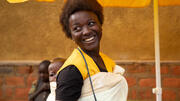-
Country Pages
-
Asie et Pacifique
- Afghanistan
- Bangladesh
- Bhoutan
- Cambodge
- Chine
- Inde
- Indonésie
- République islamique d'Iran
- République démocratique populaire lao
- Malaisie
- Maldives
- Mongolie
- Myanmar
- Népal
- Pakistan
- Papouasie-Nouvelle-Guinée
- Philippines
- Sri Lanka
- Thaïlande
- Timor oriental
- Viet Nam
-
Europe de l'Est et Asie centrale
- Albanie
- Arménie
- Azerbaïdjan
- Bélarus
- Bosnie-Herzégovine
- Géorgie
- Kazakhstan
- Bureau du Kosovo
- Kirghizistan
- Moldavie, République de
- Macédoine du Nord
- Serbie
- Tadjikistan
- Türkiye
- Turkménistan
- Ukraine
- Ouzbékistan
-
États arabes
- Algérie
- Djibouti
- Égypte
- Iraq
- Jordanie
- Liban
- la Libye
- Maroc
- Oman
- Palestine
- Somalie
- Soudan
- République arabe syrienne
- Tunisie
- Yémen
-
Afrique orientale et australe
- Angola
- Botswana
- Burundi
- Comores
- République démocratique du Congo
- Érythrée
- Eswatini
- Éthiopie
- Kenya
- Lesotho
- Madagascar
- Malawi
- Maurice
- Mozambique
- Namibie
- Rwanda
- Seychelles
- Afrique de Sud
- Soudan du Sud
- Tanzanie, République unie de
- Ouganda
- Zambie
- Zimbabwe.
-
Amérique latine et Caraïbes
- Argentine
- Bolivie, État plurinational de
- Brésil
- Chili
- Colombie
- Costa Rica
- Cuba
- République dominicaine
- Équateur
- Salvador (Le)
- Guatemala
- Haïti
- Honduras
- Mexique
- Nicaragua
- Panama
- Paraguay
- Pérou
- Uruguay
- Venezuela, la République bolivarienne du
- Caraïbes (multipays)
-
Afrique de l'Ouest et du Centre
- Bénin
- Burkina Faso
- Cabo Verde
- Cameroun
- République Centrafricaine
- Tchad
- Congo
- Côte d'Ivoire
- Guinée équatoriale
- Gabon
- Gambie
- Ghana
- Guinée
- Guinée-Bissau
- Libéria
- Mali
- Mauritanie
- Niger
- Nigéria
- Sao Tomé-etPrincipe
- Sénégal
- Sierra Leone
- Togo
-
- Accueil
- Les données
- Rwanda

UNFPA Rwanda
With one of sub-Saharan Africa’s highest population densities, Rwanda’s mostly rural population relies largely on subsistence farming. The estimated population growth in the coming decades could challenge efforts to reduce poverty. UNFPA helps ensure the wider availability of reproductive health and youth-friendly HIV prevention services through a framework of appropriate national policies, strategies, and guidelines. It backs high-quality, disaggregated data to guide policymaking and planning. Programmes also bolster responses to gender-based violence, and help to empower women in rural areas.
Population
- Population âgée de 0 à 14 ans (en %)
- Population âgée de 15 à 64 ans (en %)
- Population aged 65+
Santé sexuelle et reproductive
- Part des naissances encadrées par un personnel de santé qualifié
Planification familiale
- Modern method
Éducation
Gender, Rights, and Human Capital
Pratiques nuisibles
Population Pyramid
Espérance de vie
Total fertility rate
nouvelles
Rwanda : après un éloignement suite à une grossesse adolescente, une famille se retrouve
Lorsqu’elle avait 19 ans, Nyiranzavugimana Florence est tombée enceinte sans l’avoir prévu. Au début, sa famille et ses…
SMS tool brings sexual, reproductive health information to Rwanda’s youth
Rwanda’s health system has seen great improvements in recent years, yet one area of health care remains underserved,…


Réseaux sociaux
Tweets from UNFPATürkiye